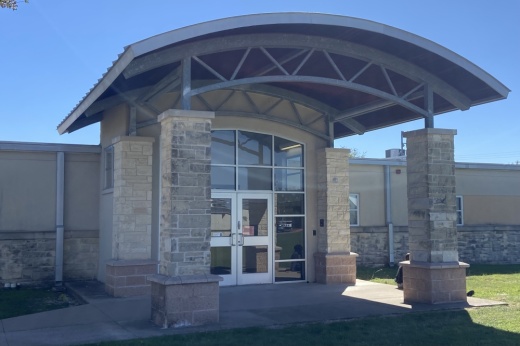The overview
A new state law went into effect Sept. 1 requiring students using, possessing or selling e-cigarettes, marijuana or THC at school to attend a disciplinary alternative education program, or DAEP.
Prior to the law, Leander and Liberty Hill ISDs sent students to DAEP or juvenile programs for marijuana and THC offenses. Though officials expressed concern about implementing the requirement for e-cigarettes, both districts have seen a decrease in the number of students using them.
“We've had less incidents at the start of this year so far than we've had in the last two years,” LHISD Chief of Schools Travis Motal said.
A closer look
In light of the new law, Bryan Miller, executive director of student support, said Leander ISD has seen an almost 30% decrease in nicotine vaping incidents from mid-August to mid-October last year compared to this school year. Liberty Hill has also seen a decrease, Motal said.
“We haven't had the volume that we anticipated just based on previous years,” Miller said.
Over 170 students received disciplinary action for e-cigarette or tobacco use in Leander ISD in the 2022-23 school year.
Beyond the law, Miller and Motal said they believe the decline may be due to the districts’ preventative efforts, such as vaping curriculum and presentations for students. Motal said the district’s harsher stance on marijuana and THC offenses may also have an impact as LHISD students attend the Williamson County Juvenile Justice Center.
Miller said he’s pleased to see a drop in vaping incidents as the Leander Extended Opportunity Center, which serves both districts, did not have enough seats to accommodate the amount of students vaping in years prior.
The LEO Center has a maximum of 125 seats, only 12 of which are reserved for Liberty Hill ISD, Miller and Motal said.
As of mid-October, one student in each district attended the LEO Center for e-cigarettes this school year.
The approach
The districts have taken the following disciplinary approach to e-cigarettes to keep more students in the classroom and have capacity at the center, Miller said.
- First-time offenders attend in-school suspension.
- Second-time offenders are required to attend the LEO Center.
- A 10-15 day placement is required compared to the typical 30-45 DAEP placement.
- Districts discuss future consequences with students and parents of first-time offenders.
Moving forward
Motal said Liberty Hill ISD hopes to open its own DAEP in the next year or two. Despite a decrease in nicotine vaping offenses, he said capacity at the LEO Center continues to be an issue for the district as it has a limited number of seats.
“Our seats for LEO are full right now for other offenses that are not vapes, so if we were sending [students] that vape on top of that, we would run out of seats,” Motal said.
This year, Leander ISD Director of Counseling Services Steve Clark said he’s requested that the School Health Advisory Committee review and recommend a research, evidence-based vaping and substance abuse curriculum for the district to potentially adopt.





